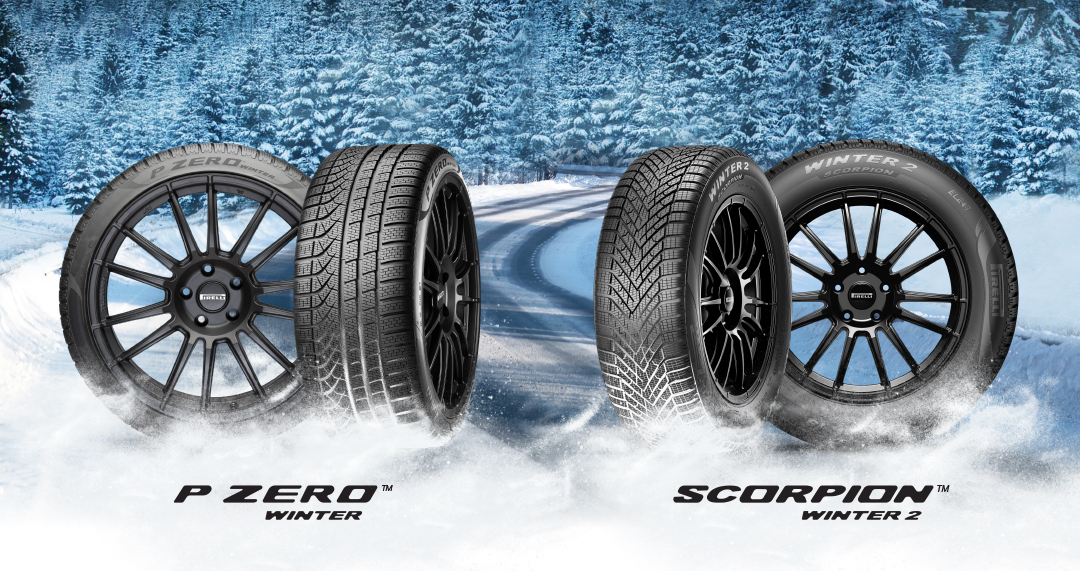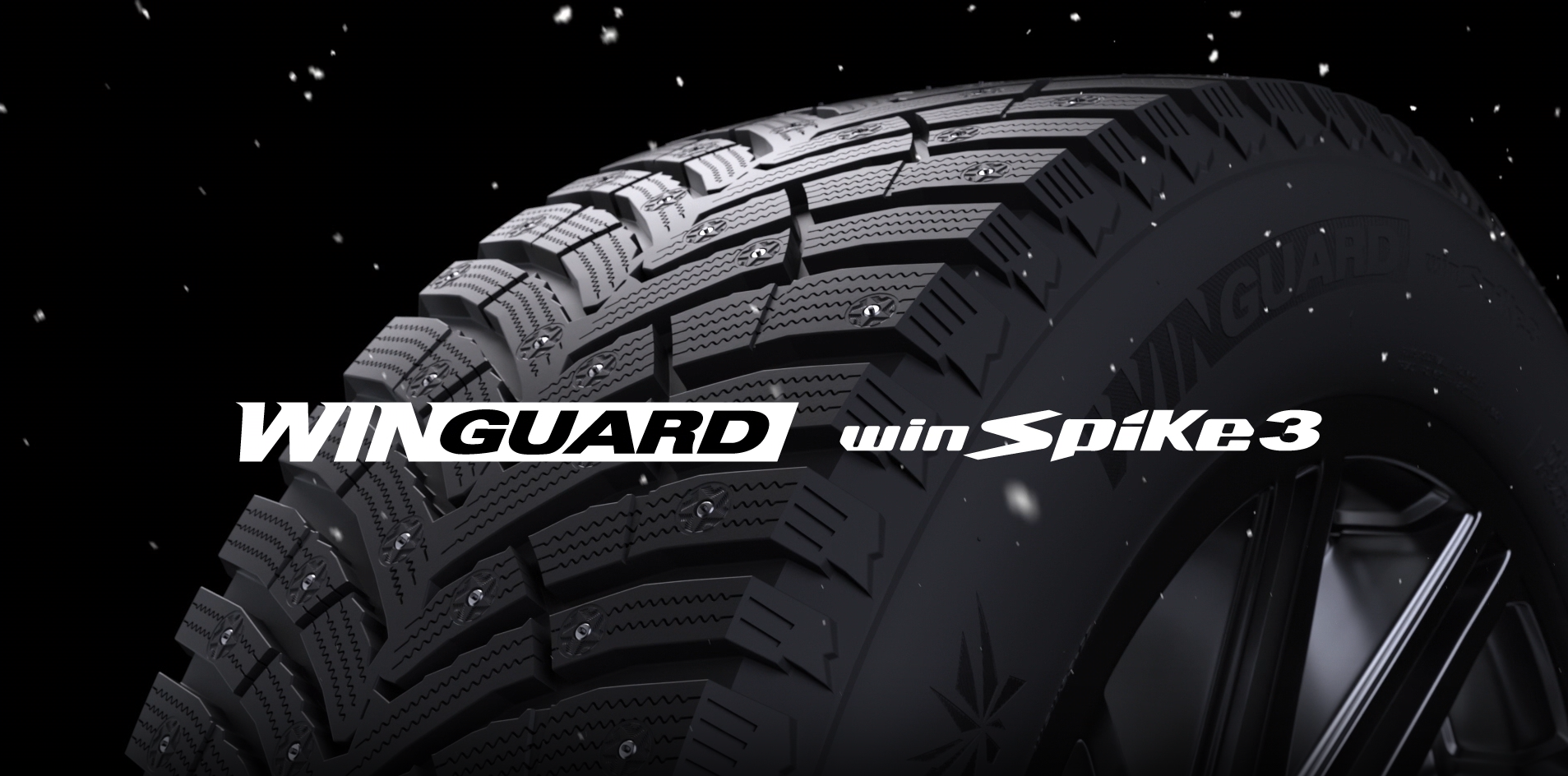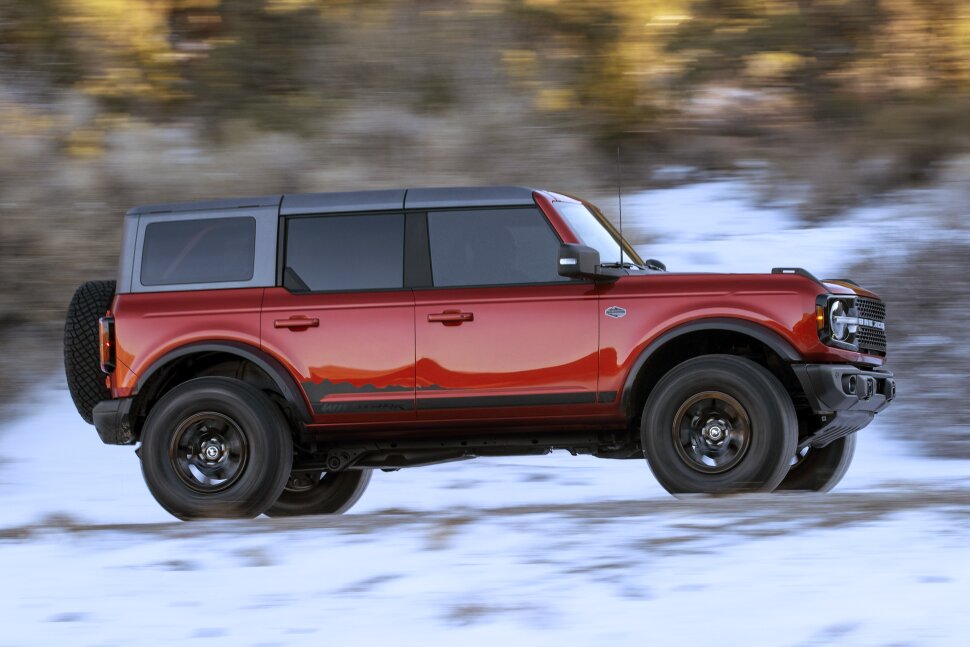Last Updated on November 4, 2024
Introduction to tire manufacturing and selection
Tire production is a challenging and detailed process that combines art and science to create the only portion of a vehicle that touches the road. Tire manufacturing has progressed from an essential operation to a complex technological process that includes several phases and materials.
Overview Of Rubber Tires
Rubber tires are commonly used in the automotive sector and are made of natural and synthetic rubber. Natural rubber comes from rubber trees in Southeast Asia, Africa, and South America. Synthetic rubber is derived from petrochemicals, making it more resistant to abrasion and aging.

Components and Quality Standards
A modern car tire typically has around 25 components and up to 12 distinct rubber compounds. A tire’s key components are the tread (which provides traction), the body (which supports the vehicle’s weight), and the sidewalls (which connect the tread to the body). Steel belts inside the tire increase its strength and durability.
Tire manufacturers have high-quality standards that promote safety, performance, and longevity. These requirements ensure that the manufactured tires can survive various situations while providing the essential grip, handling, and comfort. Manufacturers listen to international standards such as ISO while implementing internal quality control procedures.
Importance of Tire Selection
Choosing the right tire is essential to vehicle safety, performance, and fuel efficiency. Different types of tires are intended to handle varied driving conditions. All-season tires are excellent for general use, performance tires are for high-speed driving, and winter tires are specifically developed for cold, icy situations. The proper tire selection is determined by many factors, including the type of vehicle, driving patterns, and the environment of the region where the automobile is primarily driven.
Tire selection impacts the overall driving experience. The appropriate tires can help improve vehicle control, shorten braking distances, and increase fuel efficiency.
Choosing the wrong type of tire can increase vehicle wear and tear, reduce fuel efficiency, and even pose safety risks.
Tire manufacture is a complex process requiring a thorough understanding of materials and engineering. Tire manufacturers’ components and quality standards assure both safety and performance.
Furthermore, choosing the proper tire is critical for ensuring optimal vehicle performance and safety, making it an essential choice for every vehicle owner.
The Tire Manufacturing Process
Tire manufacturing has many processes, each necessary to ensure the final product meets high safety, durability, and performance standards. Let’s delve into each step of this fantastic process.
Step 1: Creating Composite Materials
The initial step in tire manufacturing is to develop composite materials. The tire is mainly composed of rubber, whether natural or synthetic. Natural rubber is produced from rubber trees, but synthetic rubber results from complicated chemical procedures. These rubbers are then treated with many chemicals to improve their characteristics. Carbon black, silica, and plasticizers are common additives that increase tire durability, traction, and lifetime. This combination is then treated to produce rubber compounds, each with a unique role in the tire’s structure.
Step 2: Manufacturing of Components
Once the rubber compounds are ready, they create different tire components. These include the tread (the outer surface that makes contact with the road), the sidewalls, steel belts, and bead wires. Steel cords are coated with rubber and used to manufacture steel belts, which provide strength and stability to the tire.
Also, bead wires, which are high-tensile strength steel wires, are coated with rubber. These components are manufactured accurately to meet the tire’s design specifications.
Step 3: Building the Tire
In the third stage, all these components are assembled to build the tire. Tire-building machines usually do this process. The different layers of materials—rubber compounds, steel belts, bead wires, and textiles—are carefully assembled in a specific order. This semi-finished tire is called a “green tire” at this stage, as it hasn’t been vulcanized yet.
Step 4: Vulcanization
Vulcanization transforms the green tire into a finished product. The tire is placed in a mold and subjected to high heat and pressure. During this process, the rubber compounds undergo a chemical change, becoming more durable and elastic. This step also forms the tread patterns and sidewall markings on the tire, which are crucial for traction and brand identification.
Step 5: Quality Control
The final phase is quality control, a vital component in tire manufacturing. Every tire passes extensive testing to verify that it satisfies the appropriate requirements. This includes visual checks, x-ray examinations for internal flaws, and uniformity testing to ensure the tire’s balance and roundness. These quality control techniques ensure every tire is safe, dependable, and ready for the road.
Tire production is an advanced and broad process that combines engineering and chemistry. From composite material development to rigorous quality control, each stage is critical to developing tires that meet the automotive industry’s demanding safety, performance, and durability standards.
Selecting the Best Quality Tire
Selecting the best-quality tire for your vehicle is an important decision that affects not only your car’s performance and efficiency but also its occupants’ safety. Understanding the factors that influence tire quality and being aware of popular tire brands can help you make an informed choice.
Factors Influencing Tire Quality
Tire quality is determined by various factors, including the materials used (natural and synthetic rubber), tread design, and construction technology. These components considerably impact the tire’s durability, grip, overall performance, and suitability for various driving conditions and locales.
- Materials and Construction: The quality of the materials used (natural or synthetic rubber, steel, etc.) and the building method considerably impact tire quality. The composition and design of a tire’s tread, sidewall, and other components determine its durability, grip, and general performance.
- Tire Design: The tire design influences traction, handling, and noise. Different tread designs are appropriate for varied driving conditions. For example, tires suited for rainy conditions feature grooves to drain water away, but off-road tires have deeper treads for increased traction.
- Tire Type and Size: It is essential to select the correct tire type (all-season, performance, winter, etc.) and size indicated by your vehicle’s manufacturer. Incorrect tire size can affect vehicle control, fuel efficiency, and speedometer accuracy.
- Load Index and Speed Rating: The tire’s maximum load capacity and speed. Choosing a tire with the proper load index and speed rating for your vehicle and driving habits is essential for safety and performance.
- Wear and Durability: A tire’s resistance to wear and tear, often measured by tread life, is a crucial aspect of its quality. Durable tires offer longer tread life, providing better value over time.
- Climate Compatibility: Tires are designed to perform optimally in specific weather conditions. For instance, summer tires are unsuitable for winter conditions as they harden at lower temperatures, reducing traction.
Notable Tire Brands
The most recognized names in the tire industry include Michelin, Bridgestone, Goodyear, Continental, and Pirelli. These brands are renowned for their commitment to quality, innovation, and safety and offer a wide range of products that cater to various driving needs and vehicle types.
- Michelin: This brand is known for high-quality tires with excellent grip, fuel efficiency, and long tread life. Michelin tires are often praised for their performance in various driving conditions.
- Bridgestone is one of the largest tire manufacturers globally. It offers a wide range of tires known for their durability and performance.
- Continental is renowned for innovation and quality. Its tires provide superb handling, comfort, and safety.
- Goodyear: A famous brand in both the consumer and racing sectors, Goodyear tires are known for their reliability and performance across various conditions.
- Pirelli: Famous for high-performance tires, Pirelli is often the choice for luxury and sports car manufacturers.
- Cooper: Known for providing good value, Cooper offers a wide range of affordable yet reliable tires.
- Hankook: They are gaining a reputation for quality and innovation; Hankook tires are becoming increasingly popular for their performance and affordability.
- BFGoodrich: BFGoodrich, part of the larger Michelin group, has a strong legacy in tire manufacturing, primarily known for its pioneering role in developing the first all-terrain tires. Their products are highly regarded in the off-road and motorsport arenas, where durability and performance in challenging conditions are paramount.
- Falken Tires: Established in 1983, Falken Tires is a Japanese brand that has gained a strong reputation for its high-performance tires. Known for their innovative technology in tire tread design, Falken tires are a preferred choice for drivers seeking a blend of safety, performance, and modern aesthetics.
World’s Top Tire Manufacturers
The tire industry is dominated by a few global giants, each with a significant share of the worldwide market. Among these, Michelin and Bridgestone stand out as the top players, renowned for their innovation, quality, and extensive reach.
Michelin: The Largest Manufacturer
Michelin is the world’s largest tire manufacturer. It is a French multinational tire manufacturing company. Founded in 1889 by the Michelin brothers, Édouard and André, Michelin has been at the forefront of tire innovation for over a century. Michelin is renowned for its rigorous research and development efforts, which have led to significant tire technology advancements. The company is responsible for several pioneering developments in the tire industry, such as the removable, pneurail (a tire for trains), and radial tire.
Michelin’s commitment to sustainability and reducing the environmental impact of its products has also been a critical aspect of its operations. The company aims to make more fuel-efficient tires using sustainable materials that have a longer life. Michelin’s influence extends beyond passenger cars to motorcycles, bicycles, and airplanes. Their emphasis on safety, durability, and performance, coupled with a global presence, solidifies their position as the top tire manufacturer.
Bridgestone: The Second Largest Manufacturer
Bridgestone Corporation, headquartered in Japan, is the world’s second-largest tire manufacturer. Shojiro Ishibashi founded the company in 1931, and its name, Bridgestone, is a straight translation of Ishibashi, which means “stone bridge” in Japanese. Bridgestone’s commitment to innovation, quality, and global expansion has tremendously impacted the tire business.
Bridgestone’s commitment to research and development has resulted in tire materials and tread design breakthroughs. The company’s products are recognized for their high quality, safety, and performance. Bridgestone’s product portfolio is comprehensive, including a wide range of vehicles such as passenger cars, trucks, buses, and specialized vehicles for agricultural and industrial applications.
Bridgestone’s acquisition of Firestone Tire and Rubber Company in 1988 broadened its global reach and product choices. The company regularly participates in racing and actively participates in athletic events such as Formula One, improving its brand visibility and reputation.
Top Tire Brands
Michelin: A Comprehensive Review
Michelin, known for quality and innovation in the tire industry, is among the most prestigious and reliable manufacturers globally. With its roots dating back to 1889 in France, Michelin has grown to become the second-largest tire manufacturer in the world, trailing only slightly behind Bridgestone yet ahead of big brands like Goodyear and Continental.
Unique Features and Key Characteristics
Michelin’s tire portfolio includes over 50 models designed to address specific requirements and environments. This comprehensive collection comprises renowned models such as the CrossClimate2, which won the Golden Wrench for Best All-Season Tire, and the Pilot Sport 4S, awarded the Golden Wrench for Best Performance Tire. Michelin is also known for its winter tires, specifically engineered to provide excellent traction and safety in harsh, challenging winter conditions.
Consumers should recognize the brand’s dedication to excellence; it has continuously received high ratings from several rating organizations for producing tires that set the standard for quality and performance. Cities worldwide. This unwavering appreciation demonstrates Michelin’s dedication.
Pros and Cons
Pros:
- Nationwide Retail Network: Michelin tires are easily accessible across various retailers, enhancing their availability to a broad consumer base.
- Top Quality Ranking: The brand consistently ranks top in various quality assessments, reflecting its commitment to excellence.
- Top Consumer Ranking: Michelin enjoys a stellar reputation among consumers for reliability and performance.
- Wide Range of Tire Models: With over 50 models, Michelin offers one of the most comprehensive selections in the industry, catering to virtually every type of vehicle and driving condition.
- Outstanding Performance Tires: The brand is particularly noted for its high-performance tires, which deliver exceptional handling and stability.
Cons:
- Price: Michelin tires’ high quality and performance are often shown in their pricing, which can be higher than some of their competitors. This premium pricing may not fit all budgets, but the investment translates to better value over time for many.
Pricing and Availability
Michelin tires are widely available through various retailers, including Discount Tire, Tire Rack, and SimpleTire, offering competitive pricing and options for different budgets. While the brand may command a premium price, the tire’s longevity, safety features, and overall performance often justify the cost.
Bridgestone: An In-Depth Exploration
Bridgestone, a giant in the tire industry, is a shining example of innovation and quality. Established in 1931 in Japan by Shojiro Ishibashi, the company has risen to become the largest tire manufacturer in the world, doing better than other popular brands such as Michelin, Goodyear, and Continental.
Unique Features and Key Characteristics
Bridgestone’s extensive and diverse product line, with numerous tire models designed to fulfill various car needs and driving circumstances. One of their essential breakthroughs is the development of run-flat technology, which enables vehicles to continue driving safely even after a tire puncture, considerably improving safety.
The brand is also known for its commitment to environmental sustainability. Bridgestone has been at the forefront of developing environmentally friendly tires that reduce rolling resistance, increase fuel efficiency, and lower carbon emissions. This commitment to sustainability combines a relentless pursuit of technological advances in tire design and materials.
Pros and Cons
Pros:
- Innovative Technology: Bridgestone’s investment in research and development has resulted in critical breakthroughs, such as the run-flat tire.
- Global Reach: Bridgestone tires have an extensive distribution network, making them widely accessible to consumers globally.
- Environmental Commitment: Focusing on eco-friendly production and tire efficiency demonstrates the company’s commitment to sustainability.
- Diverse Product Line: Bridgestone serves many customers by producing tires for various vehicle types, from passenger cars to big trucks.
Cons:
- Price: Some of Bridgestone’s advanced tire models come with a premium price tag, which might be a consideration for budget-conscious consumers.
Pricing and Availability
Bridgestone tires are accessible worldwide through dealers, retailers, and online platforms, with choices for various market sectors and budgets. While some high-end versions may be more expensive, they are usually justified by the advanced technology, safety features, and performance they provide.
Continental: An In-Depth Analysis
Continental, a well-known name in the tire sector, represents German engineering prowess and innovation. Founded in 1871 in Hanover, Germany, Continental has since grown to become one of the world’s leading tire manufacturers, competing with heavyweights such as Michelin and Bridgestone.
Unique Features and Key Characteristics
Continental’s tire portfolio is defined by its breadth and depth, which includes a variety of tire models tailored to fulfill a wide range of automotive needs. This line comprises high-performance tires, known for their excellent handling and stability, and eco-friendly tires, demonstrating the company’s dedication to sustainability and reducing environmental impact.
One of the unique characteristics of Continental tires is their emphasis on safety. Continental has built a reputation for manufacturing tires with exceptional braking and handling, particularly in demanding driving situations. Their tires are generally equipped with innovations like the ContiSeal™, designed to seal punctures, and the ContiSilent™, a tire noise-reducing technology.
Continental is also known for its research and development in autonomous driving and vehicle networking, which pushes the limits of traditional tire manufacturing.
Pros and Cons
Pros:
- Innovative Technology: Continental’s commitment to innovation is evident in its use of advanced technologies in tire production.
- Strong Focus on Safety: The brand is well-known for producing tires that enhance safety, mainly through superior handling and braking performance.
- Environmental Commitment: Continental has taken a significant step in producing eco-friendly tires, reducing rolling resistance for better fuel efficiency.
- Wide Range of Products: Their detailed product line caters to various vehicles, including passenger cars, trucks, and commercial vehicles.
Cons:
- Price: As with many premium tire brands, some of Continental’s advanced models come with a higher price tag, which might only suit some budgets.
Pricing and Availability
Continental tires are widely available worldwide through dealers, stores, and online platforms. Their prices vary, and alternatives cater to various market sectors, ranging from low-cost versions to high-end, technologically advanced tires.
Continental is a pillar in the tire manufacturing industry, known for its commitment to quality, innovation, and safety. Continental’s vast selection of high-quality tire models, together with its dedication to environmental sustainability, has cemented its place as a top option among drivers worldwide. While the price of some models may be an issue, the brand’s emphasis on manufacturing long-lasting, safe, and efficient tires makes it a reasonable investment for consumers seeking performance and dependability.
Goodyear: A Comprehensive Review
Goodyear, one of the world’s oldest and most prestigious tire manufacturers, has established itself as a pillar of innovation and reliability. Goodyear, one of the world’s oldest and biggest tire manufacturers, has established itself as a symbol of innovation and dependability in the tire industry. Frank Seiberling founded Goodyear in Akron, Ohio, in 1898, and it has since grown to become one of the world’s leading tire firms alongside Michelin and Bridgestone.
Unique Features and Key Characteristics
Goodyear’s impressive portfolio includes many tire models that meet various driving needs and scenarios. The company is noted for innovative tire production, like the Assurance WeatherReady tires that adapt to changing weather conditions and the Eagle F1 series for high-performance driving. It is a leader in the tire market. Frank Seiberling founded Goodyear in Akron, Ohio, in 1898, and it has since grown to become one of the world’s leading tire firms alongside Michelin and Bridgestone.
Goodyear tires are known for their emphasis on durability and safety. The company invests heavily in R&D to ensure that its tires provide proper traction, handling, and longevity. This emphasis on safety is shown in their RunOnFlat technology, which lets drivers continue driving at a lower speed even after a puncture.
Pros and Cons
Pros:
- Wide Product Range: Goodyear offers many tire types, including all-season, performance, winter, and all-terrain tires, to suit practically every vehicle and driving environment.
- Innovative Technologies: The company’s commitment to innovation has resulted in innovative tire characteristics that improve safety and performance.
- Strong Brand Reputation: Goodyear has a solid reputation for dependability and quality among consumers worldwide.
- Commitment to Safety: Their tires are known for excellent grip and stability, contributing to safer driving experiences.
Cons:
- Price: Some of Goodyear’s advanced models may be priced higher than those of competitors, reflecting the technology and quality they offer.
- Availability: While widely available, some specialized tire models may not be as readily accessible in all regions.
Pricing and Availability
Goodyear tires are available from a wide range of retailers, including Discount Tire, Tire Rack, and SimpleTire. Pricing varies to accommodate different budgets and needs. Because of the brand’s commitment to quality, its tires are often bought as an investment in long-term performance and safety.
Pirelli: A Comprehensive Review
Pirelli, an Italian brand established in 1872, symbolizes high performance and luxury in the tire industry. With its roots in Milan, Pirelli has become one of the most recognized names in tire manufacturing. It is renowned for its association with high-end sports cars and motorsport.
Unique Features and Key Characteristics
Pirelli’s portfolio shows precision engineering, with various tire styles developed to improve the driving experience of performance automobiles. Among their prominent products is the P Zero series, known for its superb handling and grip on wet and dry terrain, making it a popular choice among sports car fans and luxury vehicle owners.
Pirelli has also pioneered producing tires specifically built for electric and hybrid vehicles, meeting their unique weight and performance requirements. This innovation strengthens Pirelli’s position at the forefront of the changing automotive landscape.
Pirelli tires stand out for their contribution to the looks of high-end vehicles. Their focus on design elements improves performance and matches the visual.
Pros and Cons:
- High-Performance Tires: Pirelli is well-known for its high-performance tires, which provide superior handling and stability, particularly in sports and luxury vehicles.
- Innovative Design: The business is noted for its attractive tire designs that complement the overall appearance of high-end vehicles.
- Specialization in Luxury Vehicles: Pirelli focuses on luxury and sports cars, making it a popular choice among premium automobile makers.
- Sustainable Options: Their focus on creating tires for electric and hybrid vehicles demonstrates their dedication to sustainability and innovation.
Cons:
- Price: Pirelli tires often have a premium price tag, reflecting their high-end market positioning, which might not be suitable for budget-conscious consumers.
- Specialized Focus: While Pirelli excels in the high-performance and luxury segments, their range might be less extensive for standard passenger vehicles.
Pricing and Availability
Pirelli tires are distributed worldwide through a network of authorized dealers and retailers. Their price strategy is consistent with their premium market stance, catering to clients who value performance and luxury in their tire selections.
Hankook: A Comprehensive Review
Hankook, a South Korean tire firm founded in 1941, has developed as a major competitor worldwide. Previously known as Chosun Tire Company, Hankook has risen to become the world’s seventh-largest tire producer, demonstrating a remarkable path of expansion and innovation that rivals brands such as Michelin and Bridgestone.
Unique Features and Key Characteristics
Hankook’s broad and diverse portfolio includes over 50 tire models designed to fulfill various needs and situations. The brand is well-known for its Ventus line, which has won awards for its performance in sports and high-speed applications. Hankook is particularly famous for its innovations in environmentally friendly tire technology, which result in tires with decreased rolling resistance and improved fuel efficiency.
Pros and Cons
Pros:
- Wide Range of Products: Hankook offers an extensive selection of tires, including all-season, touring, high-performance, and winter tires, suitable for various vehicles and driving conditions.
- Innovative Design: The brand’s investment in R&D has led to the development of tires that excel in performance, safety, and environmental sustainability.
- Competitive Pricing: Hankook provides high-quality tires at more affordable prices than some of its premium competitors.
- Growing Reputation: The brand is gaining a solid reputation globally for quality and performance, especially in the premium segment.
Cons:
- Brand Recognition: Despite its quality, Hankook may have a different level of brand recognition than some of the older, more established companies in the tire industry.
- Specialized High-Performance Options: While Hankook excels in general-purpose tires, its range of specialized high-performance tires is still evolving.
Pricing and Availability
Hankook tires are widely available through retailers globally, including online platforms and local dealers. The brand offers competitive pricing, making its high-quality tires accessible to a broader range of consumers. Hankook’s pricing strategy balances affordability and quality, making it an attractive option for those seeking value for money.
Cooper: A Comprehensive Review
Cooper Tire & Rubber Company, established in 1914 in Findlay, Ohio, is a noteworthy and reliable player in the global tire industry. Although smaller than giants like Michelin or Bridgestone, Cooper has carved out a significant niche, particularly in the North American market, and is recognized for its quality and value.
Unique Features and Key Characteristics
Cooper’s tire portfolio is comprehensive, with types designed to fit various driving needs and situations. One of its most distinguishing features is its emphasis on supplying high-quality, long-lasting tires at an affordable price. This makes it an appealing choice for consumers on a tight budget who nonetheless prioritize performance and safety.
Among their popular models are the Cooper Discoverer series, which is well-known for its off-road and all-terrain capabilities, and the Cooper CS5 Ultra Touring tire, which is noted for its superb handling and longevity. Cooper’s commitment to quality is obvious in its use of cutting-edge tire design and production processes, which ensure safety, longevity, and performance.
Pros and Cons
Pros:
- Affordability: Cooper offers high-quality tires at prices that are often more affordable than some premium brands.
- Wide Range of Products: Their product portfolio includes an extensive range of all-season, touring, high-performance, and off-road tires.
- Focus on Durability and Safety: Cooper tires are known for their durability, offering long tread life and reliable performance.
- Strong Market Presence: Powerful in the North American market, Cooper tires are easily accessible through various retailers.
Cons:
- Brand Recognition: While Cooper is well-known in specific markets, it may have a different global brand recognition than some of the industry’s older and larger companies.
- Limited High-Performance Options: While they excel in general-purpose and all-terrain tires, Cooper’s range of specialized high-performance tires is more limited compared to brands like Michelin or Pirelli.
Pricing and Availability
Cooper tires are readily accessible from a range of merchants, including physical stores and online marketplaces. They are generally priced competitively and represent good value for the quality and performance they provide. Cooper’s cost and quality make it a popular choice for many drivers.
BFGoodrich: A Comprehensive Review
BFGoodrich, a well-known name in the tire industry, is recognized for its pioneering contributions and unwavering commitment to innovation. Since its establishment in 1870, BFGoodrich has played an essential role in defining the tire business, emerging as a well-known brand that balances performance and durability.
Unique Features and Key Characteristics
BFGoodrich’s portfolio stands out for its emphasis on high-performance and off-road tires, which appeal to enthusiasts and professionals. Their products, such as the All-Terrain T/A KO2 and the Mud-Terrain T/A KM3, are built to withstand harsh terrain and weather. These tires are renowned for their toughness, durability, and excellent grip in off-road conditions.
Pros and Cons
Pros:
- Specialization in Off-Road Tires: BFGoodrich is known for its exceptional off-road tires, offering superior performance in rough terrain.
- Motorsport Legacy: Their success in motorsports highlights the brand’s commitment to performance and durability.
- Adventurous Driving Experience: BFGoodrich tires are designed for drivers seeking adventure, providing a balance of excitement and safety.
- Technological Innovation: The brand uses new technologies to enhance tire performance and safety.
Cons:
- Limited Focus: BFGoodrich excels in off-road and performance tires; however, its offerings in standard passenger tire categories may be more limited.
- Price: Some high-performance and specialized off-road tires are more expensive, making them only suitable for specific budgets.
Pricing and Availability
BFGoodrich tires are available through various retailers, including specialized automotive stores and online platforms. BFGoodrich’s pricing strategy reflects the quality and performance of its tires, particularly in the off-road and high-performance segments.
Falken Tires: A Comprehensive Review
Established in 1983 in Japan, Falken Tires has rapidly grown into a well-respected name in the tire industry. While not as old as some of its competitors, like Michelin or Bridgestone, Falken has made a significant impact in a relatively short time, positioning itself as a brand synonymous with quality and innovation.
Unique Features and Key Characteristics
Falken’s tire lineup is notable for its focus on high performance and advanced technology. The brand is notably recognized for its ultra-high-performance tires, including the popular Azenis series, designed for precision handling and responsiveness in dry and wet conditions. Falken also offers a comprehensive range of all-season, winter, and off-road tires, catering to a broad spectrum of consumer needs.
A key characteristic of Falken tires is their balance of performance and affordability. They are engineered to provide an excellent driving experience without the premium price tag of some luxury tire brands. Falken’s commitment to research and development is evident in its tire designs, which incorporate innovative tread patterns and rubber compounds for enhanced grip and longevity.
Pros and Cons:
- High-Performance Options: Falken is known for its high-performance tires, which offer exceptional handling and stability.
- Competitive Pricing: The brand provides a great value proposition, offering high-quality tires at more affordable prices than some premium brands.
- Wide Range of Tire Models: Falken’s diverse product line caters to various driving conditions and vehicle types, from passenger cars to SUVs and trucks.
- Innovative Design: The brand is committed to incorporating new technologies and designs to enhance tire performance and safety.
Cons:
- Brand Recognition: While Falken is well-regarded in the industry, it may have a different level of global brand recognition than some of the longer-established tire manufacturers.
- Specialized High-Performance Focus: Falken’s emphasis on high-performance tires means its offerings in other categories, such as standard all-season tires, may be less extensive.
Pricing and Availability
Falken tires are widely available through retailers, specialty automotive stores, and online platforms. The brand’s pricing strategy is geared towards providing quality and performance at a more accessible price point, making it an attractive choice for many consumers.
Falken Tires stands out in the tire manufacturing industry for its dedication to high performance, innovation, and affordability. With a robust selection of tire models that cater to various driving needs, Falken offers a compelling option for those seeking a blend of performance, quality, and value. While older than some competitors, Falken’s commitment to excellence and continuous improvement positions it as a strong player in the tire market. It is worthy of consideration for drivers looking for reliable and high-performing tires. For more detailed insights, exploring in-depth Falken tire reviews can provide additional information about specific models and their suitability for different driving conditions and preferences.
Conclusion and Recommendations
After an extensive exploration of the top tire brands in the market, it’s evident that each brand brings unique strengths and specializations. Brands like Michelin, Bridgestone, and Goodyear are renowned for their extensive history and commitment to innovation and quality. Companies like Pirelli and Falken are celebrated for their high-performance tires, while Cooper and Toyo are appreciated for their balance of quality and affordability. Understanding these nuances is crucial in making an informed decision when selecting tires.
Summary of Top Tire Brands
- Michelin stands out for its wide range of high-quality models and top-notch performance tires.
- Bridgestone offers a vast selection, excelling in technological innovation.
- Continental is known for its focus on safety and fuel efficiency.
- Goodyear combines traditional quality with modern technology.
- Pirelli excels in the luxury and sports car segments.
- Hankook and Cooper provide excellent value for money with a good balance of performance and price.
- BFGoodrich specializes in off-road and all-terrain tires.
- Falken is recognized for its high-performance options.
- Toyo is gaining popularity for its innovative designs and competitive pricing.
Tips for Choosing the Right Tire
- Understand Your Needs: Assess the driving conditions you commonly face. Are you driving primarily in urban areas, on highways, or in off-road conditions?
- Vehicle Compatibility: Ensure your chosen tires are compatible with your vehicle. Check your vehicle’s manual for recommendations.
- Seasonal Considerations: Consider the climate and weather conditions in your area. You might need all-season, summer, or winter tires.
- Performance Requirements: Consider your performance needs, such as handling, speed rating, and ride comfort.
- Budget: Balance quality with affordability. Higher-priced tires often offer longer tread life and better performance, but quality options are available at lower prices.
Making Your Tire Purchase Easy
Understanding the vast world of tires and making the right choice can be alarming. That’s where Tires Easy (https://www.tires-easy.com/) comes in. Our website offers a comprehensive range of tires from all the top brands, ensuring you find the perfect match for your vehicle and driving needs.
With detailed descriptions, customer reviews, and a user-friendly interface, Tires Easy makes tire shopping a seamless experience. Whether you’re looking for high-performance tires for your sports car, durable all-terrain tires for your SUV, or cost-effective options for daily commuting, we’ve got you covered.
Ready to make your tire purchase?
Visit Tires Easy now and explore our extensive collection. Find the perfect tires for your vehicle today and enjoy a smooth, safe, and optimal driving experience.
FAQs
What manufacturing process is used to make tires?
Tires are manufactured through a multi-step process involving blending rubber and other materials, molding, and curing. This process includes creating the tread and sidewalls, assembling various layers, and then vulcanizing the tire to give it the final shape and properties.
Who are the tire manufacturers?
Key tire manufacturers include Michelin, Bridgestone, Continental, Goodyear, Pirelli, Hankook, Cooper, BFGoodrich, and Falken. These companies are known for their extensive product range and innovations in tire technology.
What is the meaning of tire manufacturing?
Tire manufacturing refers to the process of producing tires used in various vehicles. This involves a complex engineering process where different materials are combined and shaped to have tires that ensure safety, durability, and performance on the road.
What are the innovations in tire technology?
Recent innovations in tire technology include the development of airless tires, eco-friendly materials for reduced environmental impact, increased fuel efficiency, advanced tread designs for better grip, and innovative tires equipped with sensors for real-time data.
What is the best brand of tire?
The best tire brand often depends on specific needs and preferences, but Michelin, Bridgestone, and Continental are frequently recognized for their high quality, durability, and performance across various tire types.
Which brand of tire is best?
The best tire brand varies based on individual requirements; however, brands like Michelin, Bridgestone, and Goodyear are often praised for their reliability, innovation, and wide range of options suitable for different driving conditions.
What are the top 10 tire companies?
The top 10 tire companies globally include Michelin, Bridgestone, Continental, Goodyear, Pirelli, Hankook, Sumitomo, Yokohama, Cooper, and BFGoodrich, known for their quality, extensive product lines, and innovation in tire technology.
-
Writer


















